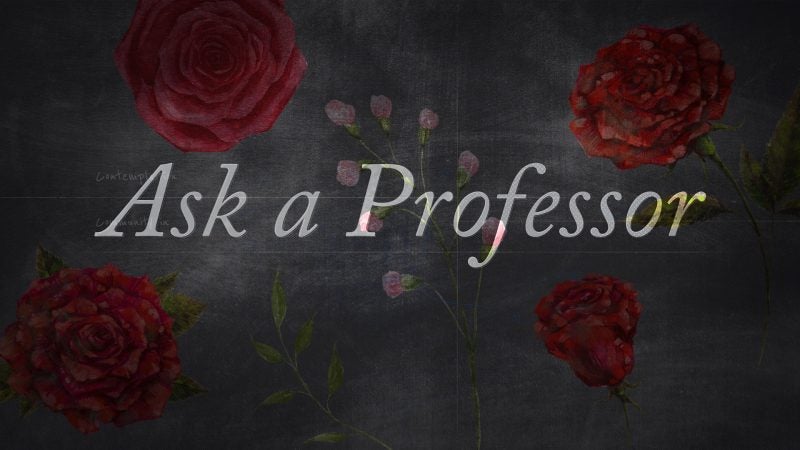Ask a Professor: Tom Sherman on Romantic Turn-Offs and the Ick
Why do people get the ick?
A lot of research papers are pretty open about having no idea. It seems to be a personal kind of qualification, and it doesn’t look to be something people choose to react to. It’s something unexpected.
There are some reactions or turnoffs that we know are genetically based. For example, we know there is a reaction to the sound of people chewing that people react to powerfully.
I first learned of this because I got my genome sequenced by 23andMe. I got questions from 23andMe. Do you do this? Do you do that? And one of them was, do you react strongly to the sounds of chewing? They’ve clearly identified some kind of genetic basis for this kind of reaction.
Are there other genetic or medical conditions that might give clues on the ick?
It is tempting to derive a neuroscience interpretation from two significantly more severe, chronic conditions: misophonia and misokinesia. Misophonia is a condition in which trigger sounds, such as chewing or breathing, provoke disproportionately strong and involuntary feelings of anger, anxiety and even intense rage, reactions that are orders of magnitude greater than the ick. Misokinesia differs from misophonia in that deeply aversive reactions are experienced when visually perceiving certain human movements.
Although making comparisons between misokinesia or misophonia and the ick is like comparing the sniffles with advanced COVID-19, there are a few clues from brain imaging studies that offer a possible, interesting mechanistic insight into the ick.
These studies show that trigger sounds, and by extension, trigger images, elicit greatly exaggerated responses in an area of the brain called the anterior insular cortex, a core hub for the collection of sensory signals providing information to our brain about the internal state of the body and, ultimately, emotional processing. As a neuroendocrinologist, I recognize this as an exaggerated manifestation of homeostasis.
Might the ick be a homeostatic error that misinterprets a sight or sound as something disgusting or inappropriate? The sudden onset suggests an unconscious rapid pattern-matching in our brain between an observed behavior and a stored negative association. We then interpret that negative association as an incompatibility or a red flag for a potential relationship.
You’ve mentioned the role evolution plays in the neuroscience of love. How does evolution possibly factor into the ick?
It must play some kind of role. You’re looking for the right mate, so what kinds of qualities are you looking for, but also what kinds of qualities are you trying to avoid? And when you run into the quality you’re trying to avoid, you could describe it as the ick.

What do you think happens in the brain when people experience the ick?
Much of the homeostatic aspect of pair bonding, meaning a stable relationship, is in the hypothalamus. Pair bonding is a homeostatic behavior because it’s evolutionarily conserved because people in a stable pair bond live longer and on average are healthier.
The hypothalamus is in the bottom of the brain. What’s interesting is that it’s above the reflex circuitry of the brainstem but below the higher cognitive centers of the cortex. It’s in a position to take information that may be reflexive like the ick but put a cognitive interpretation on that experience.
For example, if you walk into an elevator and somebody bumps you, that could be interpreted as an assault or an accidental bump, so your brainstem is receiving all of the sensory information. We learn to put appropriate societal interpretations on our sensory information.
When you’re in a relationship, that’s probably what would happen with the ick. If you’re in a new relationship, it’s a new experience, so you don’t know what to expect yet. Then, the ick could be a little bit more prominent.
Can the ick extend beyond romantic partners to friends or strangers?
It does seem to focus on romantic partners, but it is more generalized than that. Where it gets generalized the most is when it extends into areas that are not the ick. It goes to areas where it’s just bad behavior if somebody is being abusive or overtly sexist. That’s not the ick. That’s just responding negatively to bad, bullish behavior.
I would expect that if you get the ick with a friend, you’re probably not going to cancel the friendship like you would with a potential romantic relationship.




